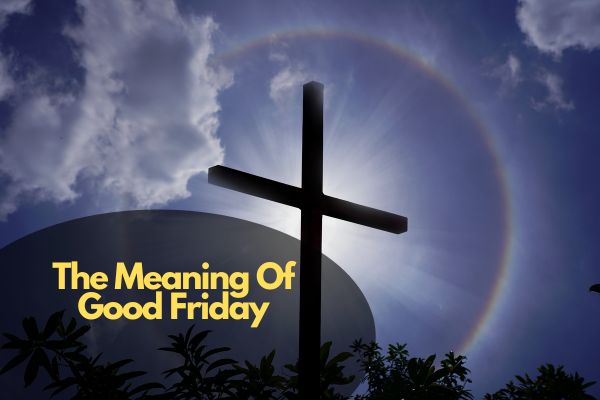Table of Contents Show
Have you ever wondered why Good Friday is called “Good”? After all, this anniversary recalls our Lord and Savior’s horrible torture and execution. Why would anyone consider that good and the meaning of Good Friday?
Good Friday, one of the most important—and toughest to stomach—holidays in the Christian calendar, reminds us of our urgent need for a Savior, as well as the great outpouring of his love and obedience, even death on the cross (Philippians 2:8).
In this post, we’ll look at the nature and history of Good Friday, why we name it “good,” and when it will take place this year.
The Meaning Of Good Friday
For those who are unfamiliar with Good Friday, this day commemorates Jesus Christ’s death for the world’s sins over 2000 years ago. The events began at the beginning of Holy Week when Jesus rode into Jerusalem.
Mid-week, one of Jesus’ disciples, Judas Iscariot, agreed to betray him to the temple officials. In the view of the religious establishment, Jesus was making unsettling statements about his divinity (John 8:48–59). They considered this blasphemy and intended to execute him for it.
Jesus is sentenced to death by crucifixion, a Roman penalty reserved for criminals (mostly insurrectionists).
He is nailed to the crucifixion on Golgotha, while others passing by mock him (Luke 23). Jesus cried seven times before giving up his spirit. He dies. Jesus is carried down from the crucifixion after being stabbed by a Roman soldier (John 19:32-34) and confirmed to be dead. And Joseph of Arimathea gets Jesus’ corpse prepared for burial (Matthew 27:57).
What Does the Bible Say about Good Friday?
All four Gospel narratives devote whole chapters to Christ’s trial, crucifixion, burial, and resurrection. We don’t have enough time to go over every verse and section. However, I will provide excerpts from each Gospel tale below.
Matthew 27:11-14: “Now Jesus stood before Pilate, the Roman ruler. The governor asked him, “Are you the king of the Jews?” Jesus remarked, “You have said it.” But when the prominent priests and elders accused him, Jesus stayed mute. “Don’t you hear all these charges they are bringing against you?” Pilate commanded. However, greatly to the governor’s amazement, Jesus did not respond to any of the allegations.
Why is the Godo Friday holiday called “Good”?
These are really difficult sections to read, let alone experience firsthand. So, why do we call Good Friday “good” while Jesus was in such agony?
According to Christianity.com, some Christians refer to Good Friday as “Sorrowful Friday” to reflect on the events. So, what about the rest of the church?
We name Good Friday “good” for several reasons. First, we must remember that Good Friday did not finish on that day. We had a few days until Resurrection Sunday. It is beneficial since it allows us to foresee what will happen a few days later.
Conclusion
Good Friday holds profound meaning for Christians around the world. It is a day of solemn reflection and remembrance, commemorating the crucifixion of Jesus Christ.
On this day, believers contemplate the sacrificial love and immense suffering that Jesus endured for the redemption of humanity. Good Friday serves as a reminder of the depth of God’s love and the transformative power of Jesus’ sacrifice.
It is through His crucifixion and resurrection that Christians find hope, forgiveness, and eternal life.







